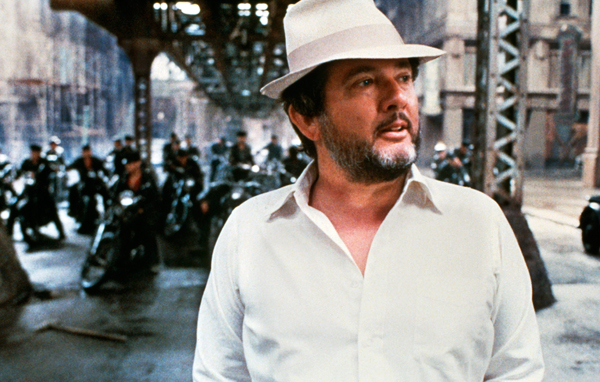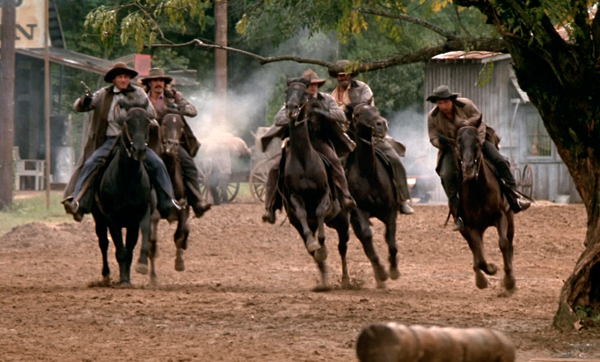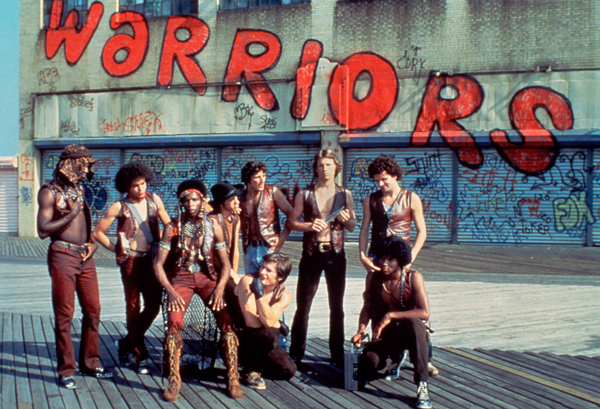Action-man / Walter Hill,
Man of the West
PostED ON AUGUST 23, 2016
"All my films are westerns," Walter Hill has often said. Meaning violent, deliberately mute, legendary... The initial, breakneck, breathtaking car chase in The Driver (1979) - a film Nicolas Winding Refn evidently watched repeatedly before making Drive - the ballet of cars in a New York wasteland where driving becomes a necessary science to save your skin, is an obvious reference to the stampedes of the classic western, where the finest rider, the most cunning too, prevails...

When the frames (sorry, cars) abused by their drivers, scrape the asphalt and make sparks fly, it's like horses neighing. And the cop Bruce Dern only addresses "the Driver" Ryan O'Neal by his "cowboy" identity. In his rationale of archetypes, Walter Hill did not want to baptize his characters… Later, making bona-fide westerns, The Long Riders (1980), Geronimo (1993) or Wild Bill (1995), the director had chosen historical characters with famous destinies. It was within the confines of the "biopic" that he found his freedom.

Walter Hill was born in 1942. Three years younger than Coppola, ten months older than Scorsese. A member of the "New Hollywood" gang, if there really ever was such a thing. A little further away, they want to dominate by revolutionizing American cinema, making it more modern and realistic, while Hill dreams only of abstraction and genre films, fascinated since his teenage years by Japanese cinema, particularly Kurosawa… Last Man Standing (1996) starring Bruce Willis is a transposed remake of Yojimbo by Akira the master. Like Coppola - but less precociously - Hill establishes himself first as a writer for Sam Peckinpah's The Getaway (1972) and authors a version of the script for Ridley Scott's Alien (1979). In the final credits, though, if he is only listed as a producer, know that it was Hill's idea to make Ripley a woman…
Meanwhile, Walter Hill switches to directing. He produces films that are striking in their taste for minimalism, timelessness and their sense of flawlessly choreographed action. In the early 80s, the weekly Saturday Review puts him on the cover alongside Schrader, De Palma, Scorsese. The title: "The Apostles of Violence." It should be said that the release of The Warriors (1979) did not bring him good publicity. This ultra-violent utopia of New York, ruled by youth gangs (but freely adapted from the Anabasis by Xenophon, from 370 BC, which underlines its untimeliness) provokes fistfights in theaters where, quite unintentionally, we find members of rival gangs. As a result, distributors drop the film and for a time, The Warriors is even banned in France...

Walter Hill regains his (economic) health thanks to 48 Hrs. (1982) and Another 48 Hrs. (1990), his two biggest blockbusters: fun thrillers, origins of the "buddy movie'"- films where two totally different guys are forced to cohabitate, to the great delight of audiences. Nick Nolte and Eddie Murphy are irresistible. When it comes to getting the most out of a brute or even giving him a little extra soul, Walter Hill is right there. Bruce Willis, Schwarzie, and Stallone have all called upon his "old school" (read: more analog than digital) polishing skills for action scenes. The next 'tough guy' will actually be a "girl" of sorts: Michelle Rodriguez will play a transgender killer in (Re) assignment, probably slated for a fall release. A certain impatience, more or less justifiable, overtakes us...

